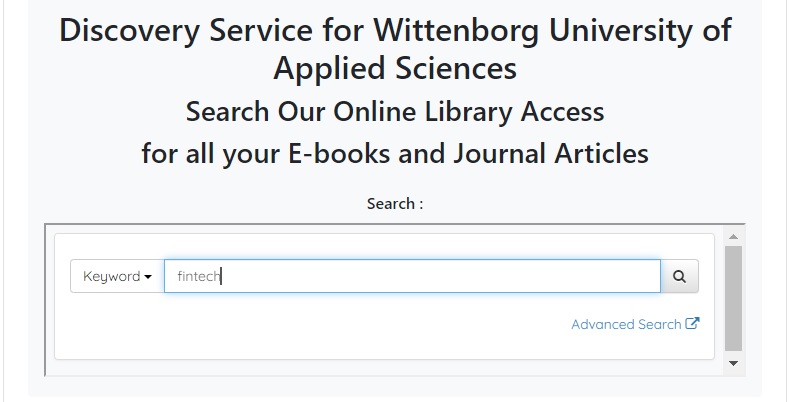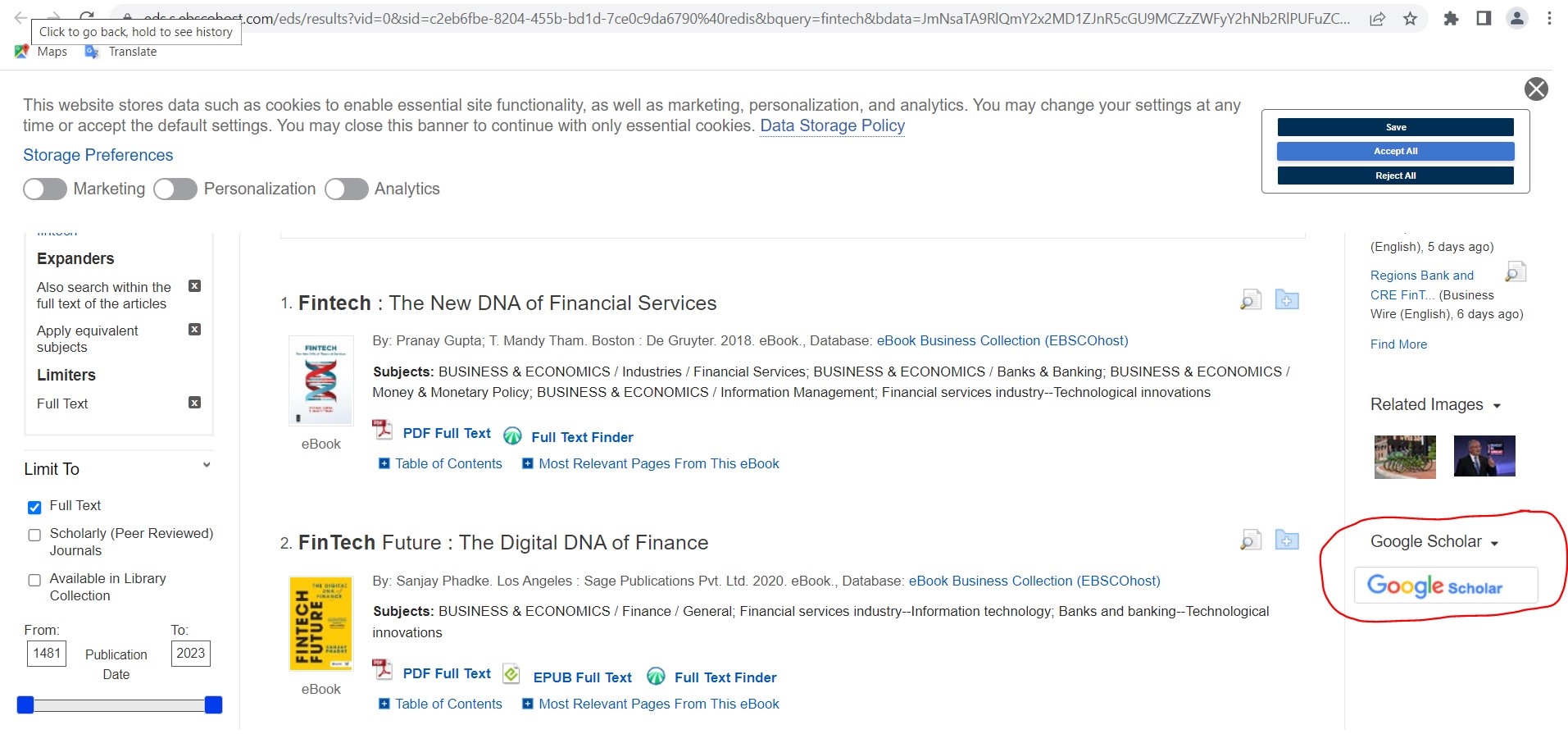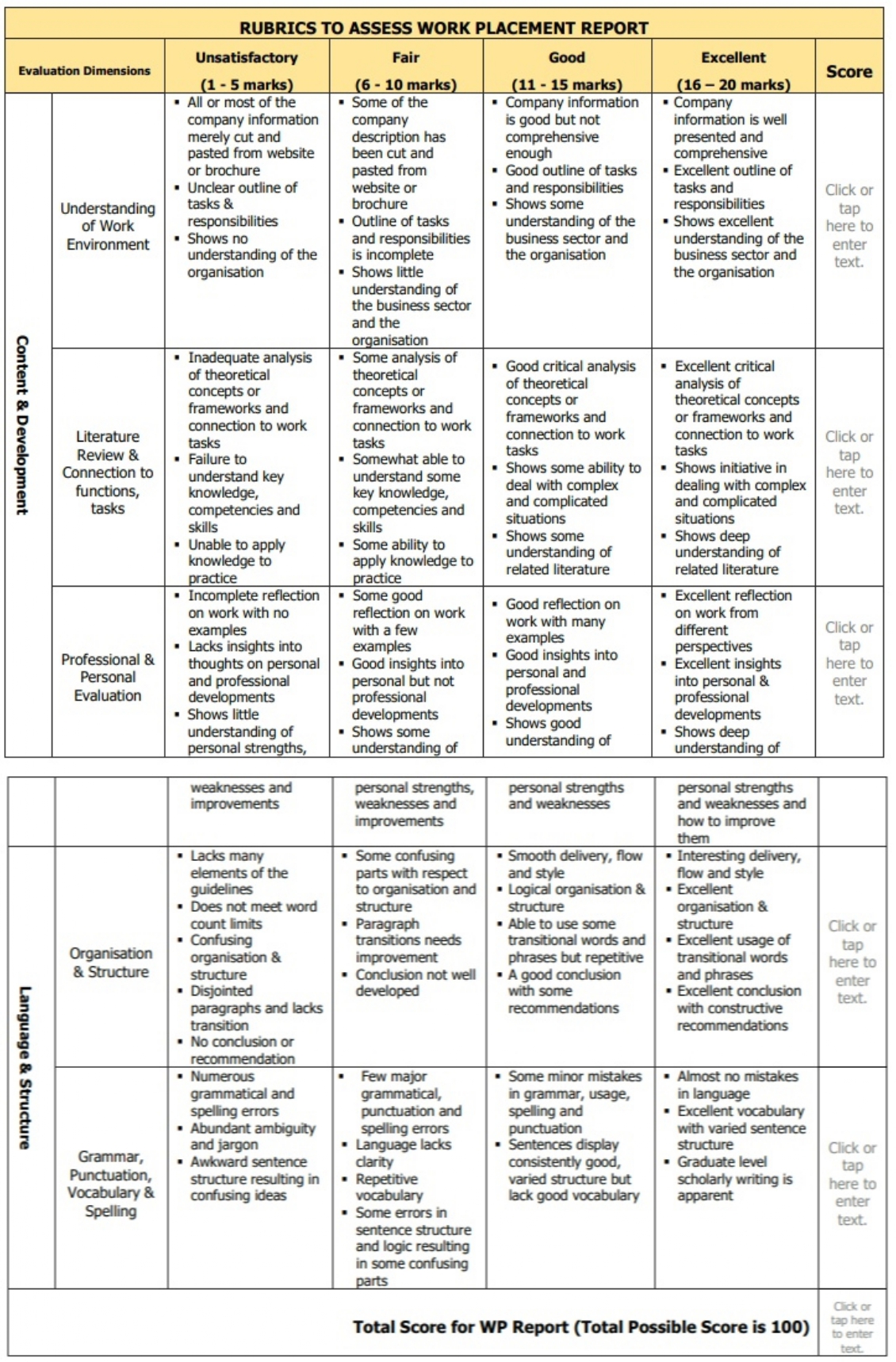Sunday, 5 May 2024, 5:25 PM
Site: Welcome to Wittenborg Online
Module: Welcome to Wittenborg Online (Wittenborg Online)
Glossary: FAQ Studying @ Wittenborg
Question: (Last edited: Friday, 8 March 2024, 3:22 PM)Mitigating Circumstances: What shall I do if I missed the assignment submission deadline? | ||
|---|---|---|
| Answer: Deadlines for submission of assignments must not be missed. No extension of deadlines are permitted outside the exam weeks. If due to exceptional circumstances, you are unable to meet the deadline, which prevents you from graduating on time, you may request an extension via Mitigating Circumstances request form Mitigating Circumstances (during standard exam weeks): - This form should be submitted at least 3 working days before the exam/deadline. | ||
Question: (Last edited: Monday, 22 January 2024, 11:50 AM)Leave of Absence/Study Freeze: Can I take a leave of absence from my studies? | ||
|---|---|---|
| Answer: Students can receive an exemption from the obligation to study upon application for a leave of absence for one lesson block, or a maximum of two consecutive lesson blocks. A leave of absence request must be submitted at least before the start of the Project Week (W3) prior to the lesson block for which the leave of absence is taken. For example, if the student wants to take a leave of absence in Block Oct, he/she has to send the request before Week 3 of Block Sep. Please contact the Registrar Office at registrar@wittenborg.eu. As part of the application for a leave of absence, student will be required to demonstrate the grounds for the request. Student will not lose his/her place to study at WUAS during the leave of absence period and may subsequently continue the study at the end of the leave period. During the leave of absence, the student remains a registered student at WUAS, and the study visa (if applicable), remains valid during this period. Additionally, as the registration is continuous, the student remains eligible for any DUO study finance/loan during the leave of absence period. For this reason, there is neither a freeze of payment obligations nor refund of the tuition fees. In case the period exceeds two lesson blocks, Wittenborg will initiate the deregistration process. If student requires a study visa to study in the Netherlands, this means that the study visa will become invalid and the student no longer has the right to stay in the Netherlands based on study at WUAS. If the student wants to restart his/her study, the student has to inform the Registrar Office and he/she will be informed of the formal procedure that needs to be taken. For more information on leave of absence, please refer to the EEG Part 12c. | ||
Question: (Last edited: Wednesday, 5 April 2023, 12:22 PM)Family Visa: How can I apply for a family visa? | ||
|---|---|---|
| Answer: Unfortunately Wittenborg does not provide assistance with this procedure. Additionally, student housing is afforded only to students who are fully registered at Wittenborg. Students who wish to bring along their family members can apply for a dependent visa at the IND (Immigratie en Naturalisatiedienst). More information about the conditions and requirements for this visa can be obtained via the IND website at Family | Immigration and Naturalisation Service (IND). | ||
Question: (Last edited: Tuesday, 4 April 2023, 3:36 PM)Changing the location to collect the Residence Permit: Can I change my appointment to collect my Residence Permit to a different city? | ||
|---|---|---|
| Answer: We highly recommend the students to pick up the residence permit from the IND office as scheduled because changing the location can take a long time and is often not accepted by the IND. Even if accepted, this might delay the completion of your registration requirements. | ||
Question: (Last edited: Wednesday, 6 October 2021, 8:33 AM)Residence Permit loss: What should be done if l lost my Residence Permit card? | ||
|---|---|---|
| Answer: If you lose your Residence, you need to follow the instructions below to report to the Immigration and Naturalisation Service (IND) this loss and to request a new residence permit card for yourself:
Finally, you need to send to the Registrar Office a front and back scan of your new residence permit once collected. | ||
Question: (Last edited: Wednesday, 13 October 2021, 9:32 AM)Lost Items: I lost my personal items. What should I do now? | ||
|---|---|---|
| Answer: Please go to the city hall of the municipal area in which you found or lost the item, or refer to www.verlorenofgevonden.nl or www.ilost.co. You cannot go to the police for lost and found items. If you have lost one of your belongings, it is not possible to file a report. Please click this link for more information: https://www.politie.nl/en/themes/lost-and-found.html Source: Politie.nl | ||
Question: (Last edited: Monday, 18 October 2021, 4:20 PM)Vaccination: Getting proof of vaccination after being vaccinated outside the Netherlands | ||
|---|---|---|
| Answer: If you have been vaccinated out of the Netherlands or EU and need proof of vaccination (QR code), you can refer to the page below for the instruction on how to get this proof in the Netherlands. https://www.government.nl/topics/coronavirus-covid-19/covid-certificate/proof-of-vaccination/vaccinated-outside-the-netherlands | ||
Question: (Last edited: Tuesday, 4 April 2023, 3:32 PM)Bank Account: How to open a private Dutch bank account? | ||
|---|---|---|
| Answer: Before you go to open your bank account, you need to choose which bank suits your needs or principles. You should also take into account that most banks charge a yearly fee for having an account with them. Most banks have packages specifically for students or young people. You can ask about this while setting up your account. Biggest banks in the NetherlandsTo open a private bank account in the Netherlands you will need to either make an appointment online, or simply walk into your nearest branch with all of your details. To open a bank account in the Netherlands you will need the following:
| ||
Question: (Last edited: Wednesday, 1 December 2021, 11:30 AM)Year Planner: Where can I find the WUAS Academic year planning? | ||
|---|---|---|
| Answer: You can fine the general year planning at WUAS main website here. | ||
Question: (Last edited: Tuesday, 21 February 2023, 3:24 PM)E-Library: How can I access books and journal articles online? | ||
|---|---|---|
| Answer: We have partnered with Perlego, EBSCO, Willey, Vital Source, and other publishers to ensure over 1,000,000 different titles of books and over 2,000,000 journal articles are available for our students and teachers. Students and staff can access these resources via the "Online Library Resources" on Wittenborg-Online. A special search function is created in this page to search all journal articles in our database (see Figure 1 below). Moreover, together with our partner, EBSCO we have developed a special widget on EBSCO search engine which will also assist you to find articles on open source publishers such as Google Scholar (see Figure 2 below).. We highly recommend students to use these resources before browsing through other external sources for the same articles or books. Figure 1
Figure 2
| ||
Question: (Last edited: Tuesday, 15 March 2022, 9:08 AM)Meeting Invitation: Why the error message "undelivered" has been sent while responding to a meeting invitation? | ||
|---|---|---|
| Answer: If a meeting has been created with any field (Subject, title, or message body) empty, then the recipient will receive the automated error message in reply that their "response was not delivered" after responding to the meeting invitation. However, this may not affect their response and their response may still be recorded. Also, if they have accepted the meeting using their phones, this issue might occur. In such cases, it is always recommended to confirm with the recipient after, if they have received your response. | ||
Question: (Last edited: Tuesday, 18 January 2022, 2:49 PM)Study Advice: what are consequences if I received a Binding Negative Study Advice? | ||
|---|---|---|
| Answer: When you have received a Binding Negative Study Advice, it means at the moment your study progress is not sufficient to continue your studies at Wittenborg University of Applied Sciences (WUAS). You are required to have obtained at least 30 European Credits in the past 12 months. WUAS will terminate your study agreement within the next 14 days, unless you take immediate action to discuss your situation with your process tutor/study advisor and are able to prove that you have excusable reasons for your insufficient study progress. Termination of the study agreement also means that WUAS will withdraw the sponsorship from IND and your study residence permit will become invalid, regardless of the date mentioned on your residence permit card. Last is exclusively applicable to students who hold a study-based residence permit. Please read the following information carefully: Study Advice: The Study Advice is sent to you every 6 months and monitors your study progress. A Binding Negative Study Advice means that you can no longer continue to study at WUAS as your study progress is so low, that it is not to be expected that you will graduate from WUAS. Study Progress Monitoring (for Non-EU/EER students holding a study-based residence permit): You have received a residence permit that is valid for the duration of your programme. To keep your residence permit, the IND requires you to obtain at least 50% of your credits (30 credits per year). If your study progress is not sufficient, WUAS is obliged to inform the IND that you have not obtained the required amount of credits. As an effect, you can lose your residence permit. This rule applies to students in both Bachelor and Master programmes. More information about the study progress monitoring requirement from IND can be found here: Study progress monitoring | Immigration and Naturalisation Service (IND). What should you do if you have received Binding Negative Study Advice? If you have received a Binding Negative Study Advice, you must immediately make an appointment to meet with your Process Tutor/Study Advisor. The Process Tutor/Study Advisor will inform the Registry Department in case there is any valid reason for not having obtained sufficient study progress, leading to a one-time waiver of the consequences of the Binding Negative Study Advice. In this case, a new study agreement must be agreed on, including a plan to improve your study progress and results. What does it mean to receive a Binding Negative Study Advice if you are a Non-EU/EER student holding a study-based residence permit: If you are not allowed to continue your study at WUAS, your study agreement will be terminated and you will be deregistered. More information can be found in the EEG/General terms and Conditions. The Immigration and Naturalisation Service (IND) will be notified that your study progress is not sufficient and that you are deregistered as a student. This will lead to a revocation of the residence permit based on study at WUAS.
What does it mean to receive a Binding Negative Study Advice if you are an EU student: If you are not allowed to continue your study at WUAS, your study agreement will be terminated and you will be deregistered. More information can be found in the EEG/General terms and Conditions. “Dienst Uitvoering Onderwijs” (DUO) will be informed that you are no longer studying at WUAS. What are excusable reasons for not achieving sufficient study progress? In agreement with article 7.51 in the WHW (Higher Education Law), there are excusable reasons for insufficient study progress. The following personal circumstances can cause a delay in a student’s study:
An excuse can only be allowed one time. These reasons have to be discussed with your process tutor/ study advisor, evidence supporting your reason is needed. If you have any questions about this policy, please feel free to contact us at registrar@wittenborg.eu or visit the Registry Department during office hours. | ||
Question: (Last edited: Thursday, 20 January 2022, 9:41 AM)Work Placement/Internship: What are the criteria for a qualified Work Placement_Bachelor? | ||
|---|---|---|
| Answer: To ensure a meaningful WP, it is necessary for the internship assignment to meet the following criteria: • The WP provides sufficient in-house operations and ownership. • The work is of sufficient level, matching the level of study (HBO). • Creativity and intelligence levels of the student should be tested; it is intended that the student’s knowledge, understanding and skills gained during study are put into practice as part of a completed task, which is ample opportunity for direct action, ownership and responsibility. • Performing simple facilitating clerical/administrative work is not permitted. • The assignment should be challenging, that is: o Students should be held accountable for their analytical and problem-solving skills. o Students should use their skills related to searching, finding and processing information. o Students should use their communication skills, both written and oral. o Students should be given the opportunity to work independently. Students must do work that matches the level of training. If possible, the intern’s roles should be rotated within the organisation. • The content of the training has to meet the objectives of the WP programme. In relation to this, it needs to be linked to the student’s general programme of study and the student's specialisation in particular. • The host organisation is responsible for supervising the student and a supervisor within the organisation should be assigned to this task. This is to facilitate the introduction of the student to the internship organisation, as well as creating a process whereby the student can be mentored, trained and evaluated within the organisation. • Understanding and skills that students have acquired, can be applied and expanded. • The company and student’s role within the company are of an international character. Students are not allowed to do the WP in their country of origin, unless it is an internationally operating company. In this case, a student must state why and in what way the company has an international character. The final decision will be made by the WP Coordinator (External Relations Department). You should discuss these criteria with your host company to ensure that the company knows what is expected of you from the school’s perspective. It will also help you formulate your job description well. Take note that even if you have a formal letter of acceptance from the employer, the WP Coordinator can disapprove of the WP if it is evaluated as not meeting the requirements mentioned in this section or for any other reasons deemed necessary. WP Coordinator must also be able to verify the company and supervisor information via their website or LinkedIn. | ||
Question: (Last edited: Thursday, 20 January 2022, 9:37 AM)Work Placement/Internship: What are the criteria of a qualified In-company Training_Bachelor? | ||
|---|---|---|
| Answer: To ensure a meaningful In-company Training, Wittenborg outlines strict criteria for organisations to qualify as placement companies. These criteria are as stated below: • The internship provides sufficient in-house operations experience. • The work is of a sufficient level. there should be opportunity to do work that matches the level of the study (HBO). • Creativity and intelligence levels of the student should be tested; it is intended that the student’s knowledge, understanding and skills gained during study are applied in practice as part of a completed task, with ample opportunity for direct action, ownership and responsibility. • Performing simple facilitating, administrative work (e.g. dish washing and photocopying) for more than 28 hours in total of the training period is not permitted. • The contents of the training need to meet the objectives of the programme and the contract is strongly linked to education or certain parts of the programme. • The host organisation supervises the student and a supervisor is appointed for this purpose. He/she introduces the student to the organisation and continues throughout the training period as a training partner for the intern. • Understanding and skills that students have acquired, can be applied and expanded.
In addition, the placement organisation should fulfil the following criteria:
• Organisations must be clearly related to the hospitality, tourism, events or sports industry and offer a conducive, safe and secure work environment. • Offer the opportunity to work at supervisory level at some stage in the training. • Provide adequate supervision throughout the placement. • Provide reasonable allowance(s). • Allocate working days, hours and shifts in accordance with the legal labour framework. • For hotels: a 3, 4 or 5-star rating and at least 20 (in the Netherlands) or 60 (outside the Netherlands) rooms. | ||
Question: (Last edited: Thursday, 20 January 2022, 9:40 AM)Work Placement/Internship: What are the criteria for a qualified Work Placement_Master? | ||
|---|---|---|
| Answer: To ensure a meaningful Work Placement, it is necessary for the internship assignment to meet the following criteria: • The internship provides sufficient in-house operations and ownership. • The work is of a sufficient level, or matches the level of the study (MBA/MSc/Pre-Master). • Creativity and intelligence levels of the student should be tested; it is intended that the student’s knowledge, understanding and skills gained during the study are put into practice as part of a completed task, providing ample opportunity for direct action, ownership and responsibility. • Performing simple facilitating, clerical / administrative work is not permitted. • The assignment should be challenging, that is: o Students should be held accountable for their analytical and problem-solving skills. o Students should use their skills related to searching, finding and processing information. o Students should use their communication skills, both written and oral. o Students should be given the opportunity to work independently. • Students must do work that matches their level of training. Where possible, the intern should be rotated throughout the organisation. • The content of the training must meet the objectives of the Work Placement programme. In relation to this, it needs to be linked to the student’s general programme of study and the students specialisation in particular. • The host organiszation is responsible for supervising the student and a supervisor within the organiszation should be assigned to this task. This is to facilitate the introduction of the student to the internship organiszation as well as creating a process whereby the student can be mentored, trained and evaluated within the organiszation. • Understanding and skills that students have acquired, can be applied and expanded. • The company and student’s role within the company have a substantial international component. You should discuss these criteria with the host company to ensure that the company knows what is expected from Wittenborg’s perspective. | ||
Question: (Last edited: Thursday, 20 January 2022, 10:43 AM)Work Placement/Internship: What are the Work Placement report assessing rubrics? | ||
|---|---|---|
| Answer:
| ||
Question: (Last edited: Friday, 26 August 2022, 8:44 PM)Can students participate lessons online? | ||
|---|---|---|
| Answer: No lessons are facilitated online from academic year 2022-2023. Wittenborg is an experiential institute, thus, students need to physically interact with each other. The teachers will conduct all lessons in the classrooms and the study materials will be available for students via the online course areas on Wittenborg-Online, as usual. Note that no lessons will be streamed live. At Wittenborg, students signed up for a programme that is planned and offered with lessons, projects, and other educational activities delivered in-campus on full-time basis. Therefore, all students are expected to effectively participate in the classes and fulfil all study requirements. If you have travelled outside the Netherlands for mitigating reasons (e.g medical) please note that you are eligible to request for Leave of absence/study freeze. You can find more information on this in the FAQs. https://www.wittenborg-online.com/mod/glossary/showentry.php?eid=848
| ||
Question: (Last edited: Tuesday, 30 August 2022, 10:20 AM)Reimbursement of Travelling Expenses: How can a student reimburse any travelling costs for moving through campuses to attend the classes? | ||
|---|---|---|
| Answer: When student groups in specialisation modules (Bachelor or Master programmes) are smaller, Wittenborg may decide to combine the groups with a other study location (Amsterdam/ Apeldoorn) to ensure consistency in our student experience. In similar situations, Wittenborg will reimburse the return travel costs (train/metro) between the two study locations (Amsterdam-Apeldoorn-Amsterdam/Apeldoorn-Amsterdam-Apeldoorn)
NOTE that this is not an option for students to follow classes at any campus. | ||
Question: (Last edited: Tuesday, 1 March 2022, 9:13 AM)What is Basisregistratie Personen (BRP)? | ||
|---|---|---|
| Answer: If you have moved to the Netherlands and intend to live here for more than 4 months, you must register yourself in the Basisregistratie Personen – BRP (Personal Records Database). You can do this by visiting the City Hall of your municipality. Similarly,
if you move to another municipality in the Netherlands, you must notify the new
municipality of your change of address. Once you register in the BRP, you will receive your BSN. Failing to do these might result in withdrawal of study visa by the Dutch Immigration Office (IND). In such a case you will be required to leave the country and apply for a new MVV (entry visa) from your home country to continue with your studies. Eventually, it will cost you time and money. Important
note: You must
inform Registry Office (registrar@wittenborg.eu) whenever you change your address within
the Netherlands. The same applies when you are planning to deregister from the
City Hall and leave the country for a temporary period of time or permanently. | ||
Question: (Last edited: Monday, 7 March 2022, 9:22 AM)Test Sirens: When are the public warning sirens tested in the Netherlands? | ||
|---|---|---|
| Answer: All over the Netherlands, the public warning sirens are tested at exactly 12.00 noon on the first Monday of every month. The siren sounds for 1 minute and 26 seconds without interruption. This is a test signal so there is nothing to worry about. The sirens are never tested on a national or religious holiday or Remembrance Day, even if they fall on the first Monday of the month. Testing the sirens is important: For more information about the siren test, please check the website https://www.government.nl/topics/counterterrorism-and-national-security/question-and-answer/public-warning-sirens | ||



